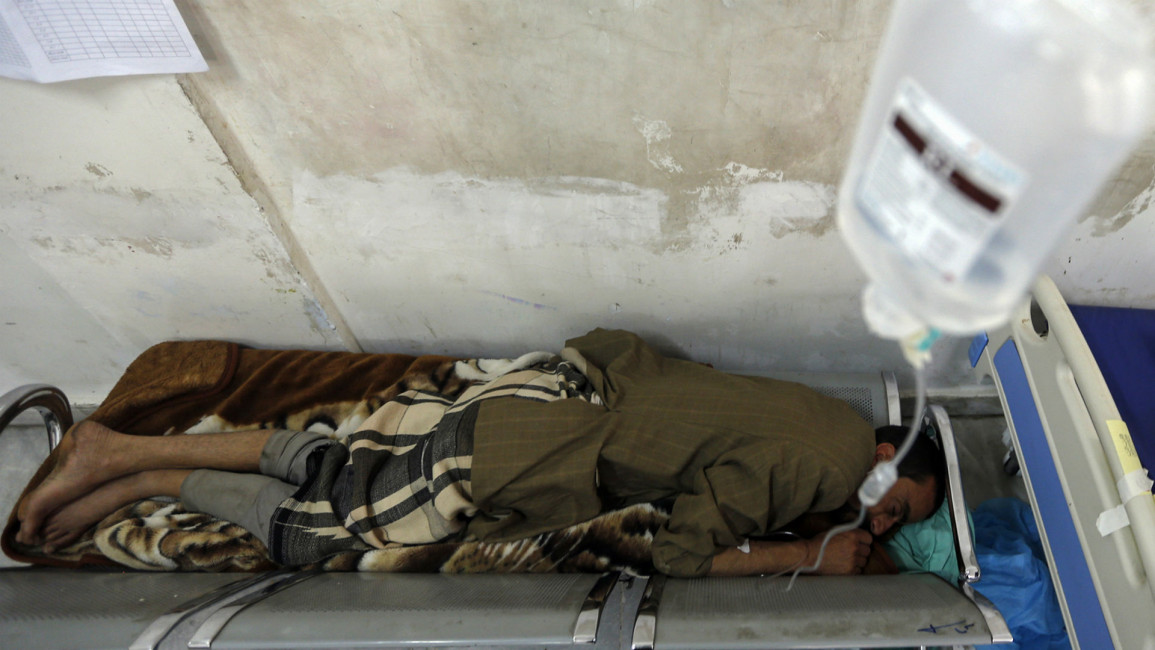Yemen cholera has infected over one hundred thousand people, killing several hundreds including children
The number of suspected cholera cases in Yemen has risen to more than 100,000 since a new outbreak began on April 1, with 789 deaths reported across the country.
The World Health Organization warned Thursday that the number of cholera cases could soon reach 300,000, with around 3,432 new cases every day.
It is the second wave of a cholera epidemic that first began in October 2016. The crisis lasted until December before dwindling, but was never brought fully under control.
"Yemen is in the grip of a severe cholera epidemic of an unprecedented scale," the UN humanitarian office (OCHA) said in a report published on Wednesday.
"Malnourished children and women, people living with other chronic health conditions and households that do not have enough to eat are now at greater risk of death as they face the 'triple threat' of conflict, famine and cholera," it said.
The rapid spread of the disease through 19 of Yemen's 23 governorates underscores the extent of the humanitarian catastrophe facing Yemen after two years of a Saudi-led war that has destroyed most health facilities.
 |
Cholera is caused by ingesting bacteria from water or food contaminated with faeces. Symptoms usually include acute diarrhoea and the disease can kill within hours. |  |
Aid group Oxfam called for a "cholera ceasefire" to allow health workers to halt the spread of the disease, adding that the published numbers were probably an underestimate.
"Yemen is on the edge of an abyss. Lives hang in the balance," Oxfam's Yemen Country Director Sajjad Mohammed Sajid said in a statement.
"Cholera is simple to treat and prevent but while the fighting continues the task is made doubly difficult."
Cholera is caused by ingesting bacteria from water or food contaminated with faeces. Symptoms usually include acute diarrhoea and the disease can kill within hours.
The disease has a short incubation period which means outbreaks spread rapidly, especially in areas without safe water or adequate sanitation.
The United Nations has called Yemen "the largest humanitarian crisis in the world", with more than 10,000 people killed since 2015 and three million displaced.
Some 17 million also lack adequate food, with one third of the country's provinces on the brink of famine.
Yemen has been engulfed in civil war since September 2014 when Houthi rebels swept into the capital of Sanaa and overthrew Hadi's internationally-recognised government.
In March 2015, a Saudi-led coalition - backed by the United States - began a campaign against Houthi rebels allied with ousted President Ali Abdullah Saleh.



